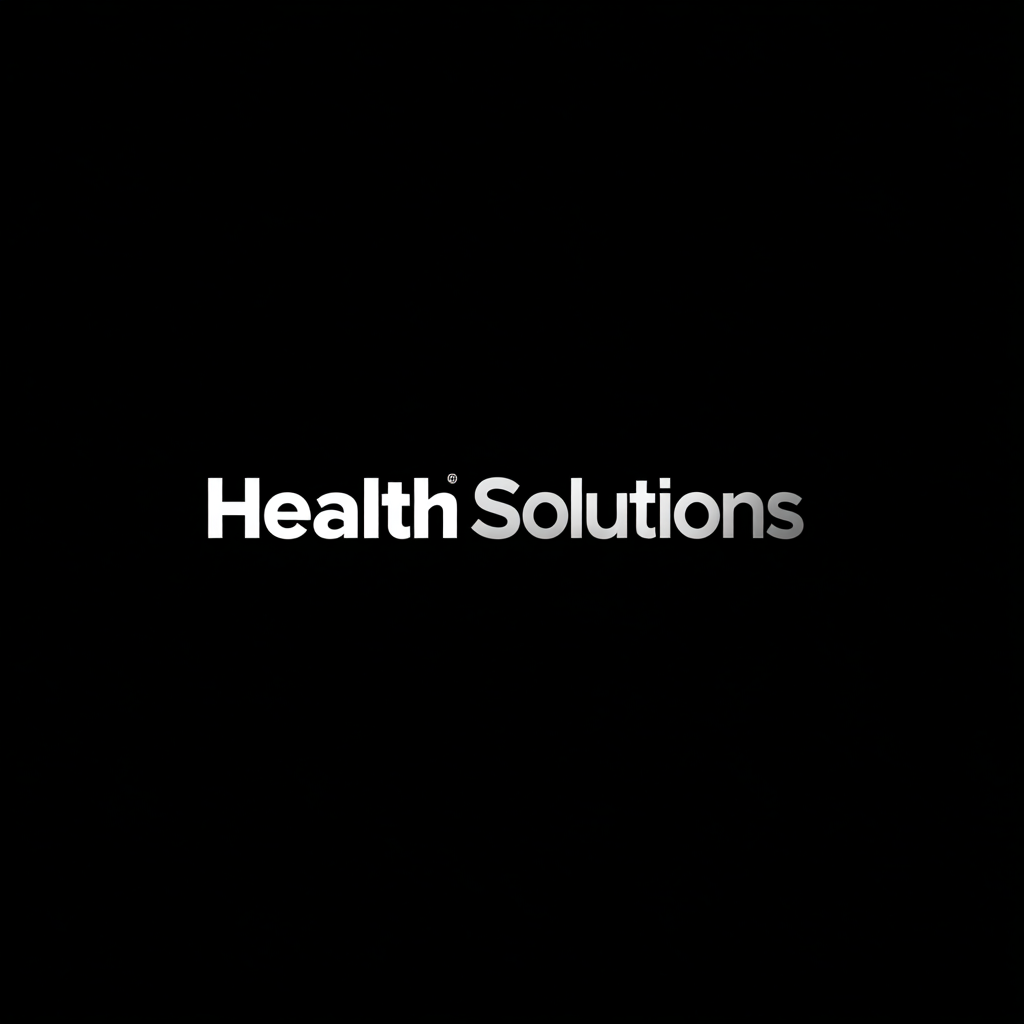Blog
Unlocking Top Health Solutions for Enhanced Wellbeing and Productivity
In today's fast-paced world, prioritizing our wellbeing is more critical than ever. As we navigate the complexities of modern life, unlocking effective Health Solutions can significantly enhance our overall quality of life and productivity. This blog will explore a variety of practical tips and innovative digital resources tailored to empower you on your journey to optimal health.

From understanding the impact of nutrition and exercise on mental clarity to leveraging technology for better health management, we aim to provide valuable insights that can seamlessly integrate into your daily routine.
Whether you're seeking to boost your energy levels, improve your focus, or establish sustainable habits, this guide will offer actionable strategies to help you thrive both personally and professionally. Join us as we delve into the transformative power of Health Solutions that can catalyze your path to enhanced wellbeing and productivity.
Identifying Key Factors for Optimal Health and Wellbeing
 Optimal health and wellbeing are fundamentally influenced by a variety of key factors, including physical activity, nutrition, mental health, and social connections. According to the World Health Organization (WHO), at least 150 minutes of moderate-intensity aerobic exercise per week can significantly reduce the risk of chronic diseases, enhancing overall wellbeing. Moreover, a report by the Global Burden of Disease Study found that poor diet contributes to approximately 11 million deaths globally each year, highlighting the critical role of nutrition in ensuring both physical health and productivity.
Optimal health and wellbeing are fundamentally influenced by a variety of key factors, including physical activity, nutrition, mental health, and social connections. According to the World Health Organization (WHO), at least 150 minutes of moderate-intensity aerobic exercise per week can significantly reduce the risk of chronic diseases, enhancing overall wellbeing. Moreover, a report by the Global Burden of Disease Study found that poor diet contributes to approximately 11 million deaths globally each year, highlighting the critical role of nutrition in ensuring both physical health and productivity.
Mental health is equally essential; research from the American Psychological Association indicates that workplace stress can decrease productivity by up to 25%. Moreover, regular social interactions and strong community ties have been shown to improve mental health outcomes, reducing feelings of isolation and promoting a sense of belonging. Investing in programs that promote physical activities, healthy eating, and mental health resources not only fosters individual health but also leads to a more productive and engaged workforce. Engaging in such holistic solutions is vital for unlocking the potential of individuals and communities alike.
Essential Nutritional Strategies for Enhanced Energy and Focus
Proper nutrition plays a crucial role in enhancing energy levels and focus, which are essential for productivity. Research from the American Journal of Clinical Nutrition indicates that individuals who consume a balanced diet rich in whole grains, fruits, vegetables, and lean proteins experience about 15% higher energy levels compared to those with diets high in processed foods. These nutrient-dense foods not only fuel the body but also support cognitive function, helping to improve concentration and mental clarity.
Incorporating specific nutritional strategies can significantly impact energy and focus. According to a report by the World Health Organization, micronutrient deficiencies can lead to fatigue and decreased productivity. To counteract this, individuals should prioritize foods high in iron, omega-3 fatty acids, and B vitamins, which have been shown to enhance brain function. For instance, a study published in the Journal of Nutritional Biochemistry revealed that omega-3 fatty acids can improve cognitive performance and reduce mental fatigue. By focusing on these essential nutritional components, individuals can unlock their potential for enhanced wellbeing and sustained productivity throughout the day.

Incorporating Mindfulness and Stress Reduction Techniques
In today’s fast-paced world, incorporating mindfulness and stress reduction techniques into our daily routines is crucial for enhancing overall wellbeing and productivity. Mindfulness allows us to cultivate a deeper awareness of our thoughts and feelings, which can significantly reduce stress. One effective technique is to practice deep breathing exercises. Simply take a moment to close your eyes, inhale deeply through your nose for a count of four, hold for a few seconds, and exhale slowly through your mouth. This simple exercise can help ground you and create a sense of calm amidst chaos.
Another powerful tool is the practice of gratitude journaling. Taking a few minutes each day to write down what you are thankful for can shift your focus away from stressors and promote a positive mindset. This can be as simple as listing three things that brought you joy that day. By acknowledging the good in your life, you encourage a more balanced perspective that fosters resilience against stress.
Lastly, incorporating short mindfulness breaks throughout your day can also enhance productivity. Set a timer for five minutes, step away from your tasks, and engage in mindful observation of your surroundings or focus on your breath. By allowing your mind a brief respite, you can return to your work with renewed clarity and focus, ultimately boosting both your wellbeing and productivity.
The Role of Physical Activity in Boosting Mental Productivity
Physical activity is a powerful tool for enhancing mental productivity and overall wellbeing. Engaging in regular exercise not only helps to improve physical health but significantly boosts cognitive functions such as concentration, memory, and creativity. When you get your body moving, your brain receives an influx of oxygen and vital nutrients, which can lead to sharper thinking and better problem-solving capabilities.
To optimize your mental productivity through physical activity, incorporate short bursts of exercise into your daily routine. Here are a couple of tips: First, consider taking brief walking breaks during your workday. Just 5-10 minutes of brisk walking can rejuvenate your mind and increase focus when you return to tasks. Second, try integrating activities that combine movement with mindfulness, such as yoga or tai chi. These practices not only engage your body but also help clear your mind, making it easier to tackle complex challenges.
Remember, the key to unlocking these benefits lies in consistency. Aim for at least 150 minutes of moderate aerobic activity each week, alongside strength training exercises. By prioritizing physical activity, you can enhance your mental productivity and pave the way to improved wellbeing.
Impact of Physical Activity on Mental Productivity
Creating a Supportive Environment for Sustained Health Improvement
Creating a supportive environment is crucial for sustained health improvement, particularly in today's fast-paced world. Research from the World Health Organization indicates that environments play a significant role in promoting health and wellbeing. For instance, workplaces that foster a culture of health—such as offering wellness programs and promoting physical activity—report a 25% increase in employee productivity. This highlights the direct connection between a supportive setting and enhanced work performance.
Moreover, a study published in the Journal of Environmental Psychology found that employees in supportive environments experience lower stress levels and improved mental health, leading to decreased absenteeism by up to 30%. Simple adjustments, like creating quieter workspaces or providing access to natural light, can significantly enhance employee satisfaction and health. Ultimately, by strategically designing and nurturing environments that prioritize health, organizations not only boost the wellbeing of their workforce but also improve overall productivity and success.
Unlocking Top Health Solutions for Enhanced Wellbeing and Productivity - Creating a Supportive Environment for Sustained Health Improvement
| Health Solution | Description | Benefits | Implementation Strategy |
|---|---|---|---|
| Regular Exercise | Engaging in physical activity on a routine basis. | Improved cardiovascular health, increased energy levels, better mood. | Set a schedule for daily or weekly workouts; find enjoyable activities. |
| Healthy Eating | Incorporating nutritious foods into daily meals. | Weight management, improved digestion, enhanced mental clarity. | Plan weekly meals; focus on whole foods; limit processed foods. |
| Stress Management | Practicing techniques to reduce stress levels. | Decreased anxiety, improved focus, enhanced overall well-being. | Incorporate mindfulness practices; schedule regular downtime. |
| Sleep Hygiene | Establishing practices to promote better sleep quality. | Increased alertness, better mood regulation, improved health. | Create a sleep schedule; limit screen time before bed. |
| Social Connection | Strengthening relationships with friends and family. | Reduced feelings of loneliness, enhanced emotional support. | Schedule regular catch-ups; foster positive interactions. |